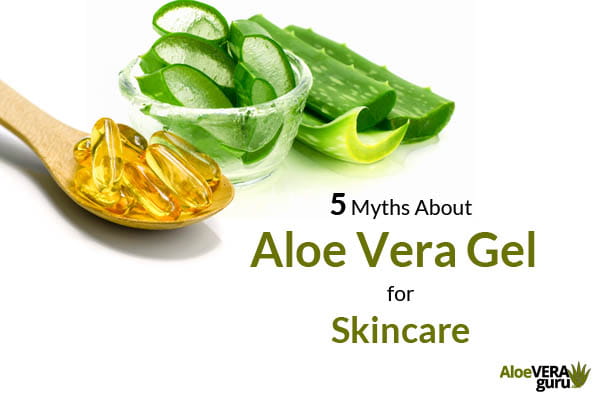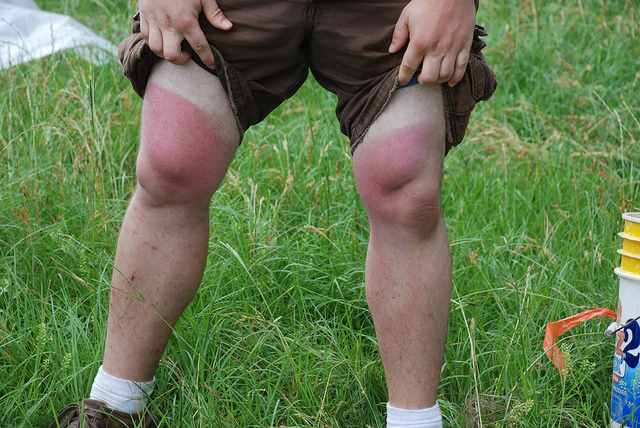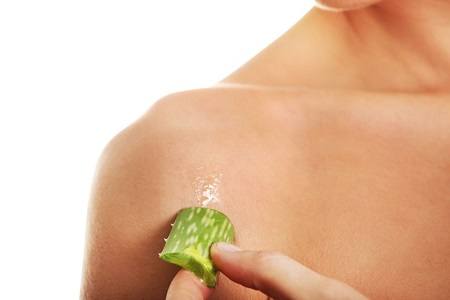5 Myths About Aloe Vera Gel for Skincare


There is a lot of information and misinformation out there in the world of skincare. With pricey department store potions selling at $10,000+ per jar, there is a lot of money to be made in skincare products. In fact, the skincare products market is on track to reach $179 Billion within the next few years. That is some serious cash.
With so much money at stake, there are a lot of brands out there selling ineffective, overpriced skincare products based on unproven pseudoscience. So, why are we buying it? Why are handing over our hard earned cash for this stuff?
One reason is that too many of us believe that natural products just aren’t as effective, but nothing could be further from the truth! Backed by countless years of research, natural cures like aloe vera have been proven effective for a wide range of skincare and beauty issues.
Ready to give it a shot? Here’s what you need to know regarding myths about what aloe vera gel can and can’t do for your skin.
MYTH 1: Aloe Vera Isn’t Effective Around Your Eyes
Eye creams are one of the most overpriced, overhyped products out there. That’s why one of our favorite uses of aloe vera gel is as eye makeup remover and moisturizer. Aloe vera is an incredibly effective way to gently remove eye makeup without irritation- and without pricey artificial ingredients!
For the ultimate natural powerhouse, try an eye makeup remover with olive oil and aloe vera. This DIY eye makeup remover is perfect for even the most sensitive skin. Thanks to its vitamins and amino acids, an aloe vera gel and olive oil blend will leave your skin hydrated and nourished as it easily wipes away even waterproof mascara and eyeliner.
For an ultra effective makeup remover, make a 50-50 blend of extra virgin olive oil and 100 percent pure aloe vera gel. Just stir them up well, then dip a cotton ball into the blend. Hold it up to your eye for at least ten seconds while your eye makeup dissipates underneath. With no need to rub to get your makeup off (which is important since you can cause premature aging in the agressive rubbing process), your makeup will glide right off.
Olive oil is amazing for skin and loaded with antioxidants like vitamin E, polyphenols, and phytosterols. While preventing aging and protecting your skin from UV rays, olive oil won’t clog your pores and cause breakouts like some ultra moisturizing creams.
MYTH 2: Aloe Vera Can’t Help a Sunburn as Well as Commercial Creams
While many people regard aloe vera as an old wives’ tale, experts agree that aloe vera really does work for sunburns. According to researchers, aloe vera gel is effective in soothing skin, and helping to heal sunburns and other types of mild burns faster.

So, if you want to treat a mild burn or sunburn, grab some aloe vera gel! It couldn’t be easier. You can cut a leaf off of an aloe vera plant (just be sure to cut from the base and take the whole leaf because it’ll help the plant regenerate better) and simply squeeze out the gel, or grab a commercially made bottle. Be sure your aloe vera gel is 100% pure, and keep it in the fridge for extra soothing, cool relief.
MYTH 3: Drinking Aloe Vera Gel Will Give You Amazing Skin
Drinking aloe vera gel juice is a huge trend at the minute and it is something that many people around the globe have been doing for generations. The reality of drinking aloe vera gel, however, is not so clear. Despite all of the marketing, there is actually very little scientific data pointing to any clear benefits of aloe vera gel.
Worse yet, a two-year study by the National Toxicology Program found that rats regularly drinking aloe vera juice were more significantly more likely to get cancer. Of course, that is not to say that aloe vera causes cancer in people. The results don’t necessarily reflect what would happen in humans, and non-decolorized whole-leaf aloe vera extract was used (whereas most juice makers use decolorized aloe vera leaf).
So, all in all, there is no proof that aloe vera gel juice can help your skin and it could potentially even be bad for your health. BUT, using it externally is awesome for your skin. Aloe vera is rich in incredible stuff like Vitamins A, B, C, and E, as well as beta carotene. With 18 of the 20 amino acids, aloe vera gel is the ultimate skin superfood!

MYTH 4: All Aloe Vera Is the Same
Even aloe vera lovers aren’t necessarily getting the full benefits of this mean, green gel. By just grabbing the first bottle that you see with the word “aloe” on it, you risk getting a pretty worthless product. It is really essential to get 100% pure aloe vera gel for maximum impact! Just because it is vibrant green doesn’t mean it’s aloe vera.
To know that you’re getting the best of the best aloe vera gel, you will want to look for a gel that has air bubbles and looks viscous. And you can’t just trust a bottle just because it says “made with 100 percent aloe vera gel”! An aloe vera gel can be made with 100 percent aloe vera gel, but the actually liquid that you are using might be 99 percent water and just contain one percent of that 100 percent pure aloe vera gel. This is why it is essential to look at the ingredient label. Make sure that aloe vera gel is the first ingredient listed so that you know that the bulk of what you are buying is, in fact, real aloe vera gel.
MYTH 5: Aloe Vera Gel Can Cure Baldness
Sorry, guys! There are only two FDA-approved treatments for baldness and hair loss. Those are minoxidil, the active ingredient in Rogaine, which works for both men and women; and then there’s finasteride for men, which is the main active ingredient in Propecia. Aloe vera is not on that list and, even according to the National Center for Complementary and Alternative Medicine, this stuff isn’t effective in treating hair loss.
If, however, you are dealing with temporary hair loss caused by psoriasis, aloe vera could be helpful. According to the National Psoriasis Foundation, aloe vera gel can help to reduce the redness and scaling that comes along with having scalp psoriasis to help you get a healthier scalp.
Image courtesy of Farther Along via Creative Commons by 2.0.

